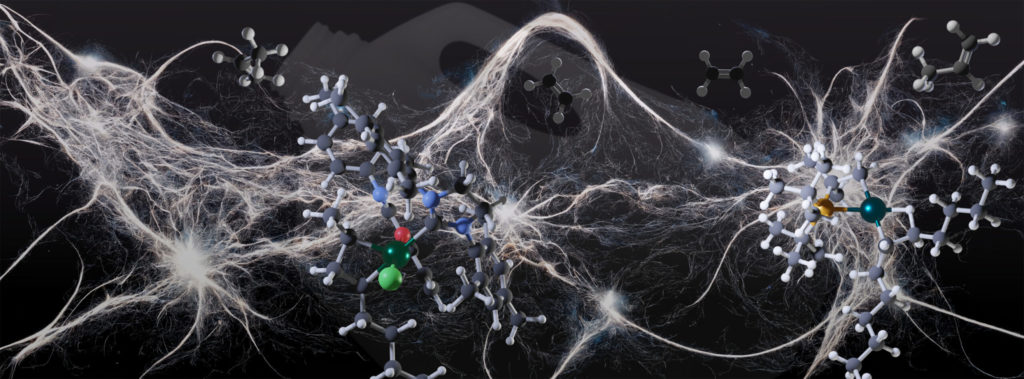This has been adapted from this Berkeley Lab press release
A team of Foundry users, working with staff, have devised a new technique for recycling polyethylene plastic bags and food packaging into propylene or propene gas, a valuable starter material for commercial plastics and commodity chemicals.
Recycling polyethylene plastic into new, recyclable plastics could help reduce carbon emissions linked to plastic pollution and landfill.

“The world produces more than 200 billion pounds of polyethylene,” said scientist John Hartwig, the senior author of the Science study reporting the new technique. “We depend on polyethylenes. They have great benefits for a huge range of applications from pipes and building materials to food preservation. The waste forms of these plastics could be a source of carbon, but these materials are very challenging to recycle. Our work addresses this problem by offering a new strategy for recycling polyethylenes to make chemicals we usually get from fossil sources.”
Polyethylene is a polymer chain of molecules or monomers comprising two carbon atoms and four hydrogen atoms: C2H4. For many years, researchers have wanted to find a way to chemically recycle polyethylene by recovering the monomers to make new polyethylene polymers as an alternative to a recycling technique called pyrolysis, which cleaves the chains of polyethylene at very high temperatures to make a mixture of chains. The problem with pyrolysis is that it’s hard to separate the products with a specific chain length you would want for a specific purpose (like for lubricants or as precursors to fuels) from the products that are too short or too long to be used.
So in order to chemically recycle polyethylene, you need to break its chemical bonds. Polyethylene is held together by unusually unreactive carbon-carbon bonds that are very hard to break, but, according to Hartwig, “We have found a way to use a series of catalysts to very selectively cleave those bonds in polyethylene to make propylene, a feedstock chemical.”
Interested in Becoming a Foundry User?
Join our collaborative, multidisciplinary environment.
Learn more >
In a key experiment, Hartwig and his team dissolved samples of high-density polyethylene (HDPE) (the plastic in container tops, milk jugs, and shampoo bottles) with ethylene gas and a catalyst in a solvent in a pressurized vessel. These conditions, the researchers predicted, would force hydrogen from some of the monomer units – And such hydrogen loss, they reasoned, would in turn enable a series of reactions between the dehydrogenated polymer and ethylene in the presence of additional catalysts to produce propylene.
Experiments at the Foundry confirmed that changes to the material’s molecular weight during the reactions were occurring as designed.
Hartwig said that although the technique is not yet ready for deployment at an industrial scale, their findings have important implications for recycling polyethylene plastic into carbon feedstocks for new plastics, industrial lubricants, jet fuels, and feedstock chemicals.
Read the full press release

